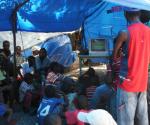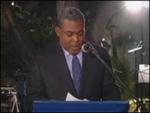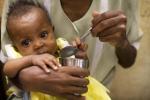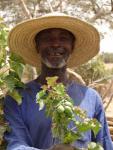Haiti Earthquake Update (6/13/2010)
 John Holmes, the UN Humanitarian Chief, yesterday expressed frustration with the humanitarian response in Haiti. Holmes stated finding available land for transitional shelters, slow decision-making by the government and new waves of Haitians moving into the settlements (often for services not available in their own neighborhoods) have made responding to the crisis particularly difficult. The Haitian government, responsible for setting priorities and developing plans, lacks staffing and expertise. It is being pulled in many directions at once on issues relating to shelter, hurricane contingency planning, governance reforms, elections, law enforcement, food security, and decentralization.
John Holmes, the UN Humanitarian Chief, yesterday expressed frustration with the humanitarian response in Haiti. Holmes stated finding available land for transitional shelters, slow decision-making by the government and new waves of Haitians moving into the settlements (often for services not available in their own neighborhoods) have made responding to the crisis particularly difficult. The Haitian government, responsible for setting priorities and developing plans, lacks staffing and expertise. It is being pulled in many directions at once on issues relating to shelter, hurricane contingency planning, governance reforms, elections, law enforcement, food security, and decentralization.








